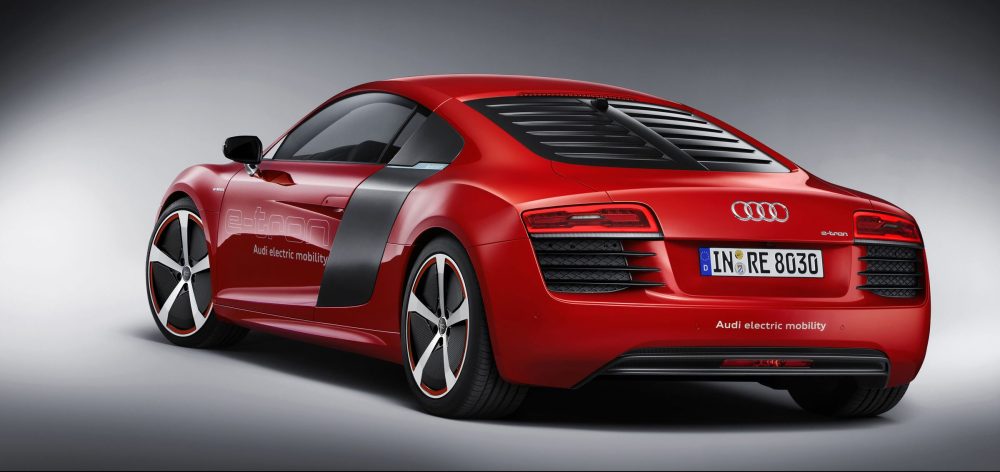Audi is working an all-electric successor to its R8 supercar to be released around “mid-decade,” according to a new report from Autocar. While the new EV won’t carry the R8 name, it will hold the spot at the top of the Audi lineup with higher performance than the e-tron GT.
The electric R8 successor hasn’t received final approval yet, but development efforts are already in progress at Audi.
The current gas-powered R8 model is nearing the end of the line, expected to go out of production in 2023. Instead of replacing it with a gas car, Audi will transition to electric for its halo performance model. The company plans to stop introducing new gas models after 2025, so with a planned “mid-decade” launch for the R8 successor, it’s going to have to be electric anyway.
The current Audi e-tron GT RS is actually the most powerful Audi ever made, with 637 horsepower, more than the gas-powered R8. But it’s a four-door performance sedan, whereas the R8 is a dedicated sportscar.
So the R8 successor will be built as a pure sportscar as well – two doors, low roof, and lots of power. It will need to be better than the e-tron GT RS’ 637hp and 3.2 second 0-60 time, and with a large enough battery to enable heavy track use.
While we haven’t seen a name or a design concept yet, a few years back Audi did show the “PB 18 e-tron” concept car at Monterey Car Week which could lend some cues to the R8 successor.
Audi hasn’t committed to a particular platform to build the car on yet, but is likely to share some parts with Porsche, as is the case with the current e-tron GT, which shares a platform with the Taycan. The R8 successor could share parts with the upcoming electric Porsche Boxster and Cayman, though Audi would still plan to hand-build some elements of the car.
Electrek’s Take
This actually isn’t the first time we’ve seen an electric Audi R8. In 2009, right after sales began of the original Tesla Roadster, Audi brought an electric R8 concept to various auto shows, which I saw at the LA Auto Show that year. It was another two-seat high-performance electric car that seemed like it would challenge the Roadster (though at ~$1 million, not on price), and show off how high-performance electric cars can be, which at the time, wasn’t something the public considered possible.

It was exciting, but then Audi dragged its feet for years. In the end, it killed off the program, not long after the Roadster went out of production. When this happened with several of Audi’s early EV announcements, it led me to deem Audi the “world leader in electric vehicle press releases.”
Since then, Audi has transitioned from press releases into action, with several electric models already available and more to come. VW Group as a whole (or should I say Voltswagen) takes EVs seriously at this point, and Audi in particular is highly committed to electrification. At the e-tron GT event we attended, Audi was sure to highlight the ways the GT compares favorably to the R8, which is quite the statement for a company to make about its flagship model.
So even though the model hasn’t received final approval yet, we think it’s likely enough that it will actually happen this time. And we can’t wait to take a drive in it, whatever form it takes.
FTC: We use income earning auto affiliate links. More.
Subscribe to Electrek on YouTube for exclusive videos and subscribe to the podcast.
